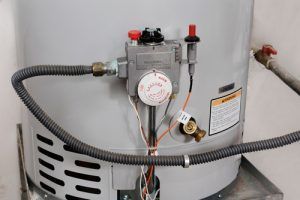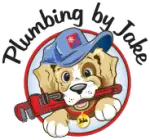
Basic Information About the Changes
The new water heater efficiency standards require all water heaters manufactured after April 16, 2015, to have a higher energy factor (EF). The EF is an indicator of the water heater’s energy usage and efficiency, and it’s based on the amount of hot water produced per unit of fuel consumed over a one-day period. Higher energy factor ratings indicate a more efficient and cost-effective water heating system.
The changes to water heater efficiency standards will affect almost all types of residential water heaters, including gas, oil, electric and tankless water heater models, which are sometimes called instantaneous or on-demand water heaters.
In general, the changes to water heater efficiency standards are expected to save significant amounts of energy while reducing household water heating costs. Industry sources indicate that total savings are expected to top $60 billion among water heaters shipped and installed between 2015 and 2014. In addition, the new efficiency standards are expected to reduce greenhouse gas emissions associated with water heaters.
New energy efficiency requirements for water heaters include the following:
- 20- to 55-gallon gas water heaters: EF of 0.675
- 55- to 100-gallon gas water heaters: EF of 0.8012
- Oil water heaters less than 50 gallons: EF of 0.68
- 20- to 55-gallon electric water heaters: EF of 0.960
- 55- to 120-gallon electric water heaters: EF of 2.057
- Tankless gas water heaters less than 2 gallons: EF of 0.82
- Tankless electric water heaters less than 2 gallons: EF of 0.93
How Changes May Affect Consumers
Homeowners who must replace a water heater or who are putting in a new one may encounter some substantial inconveniences when choosing or installing a water heater that complies with the new efficiency standards.
- Available space: Newer, larger water heaters may not fit in the space occupied by the old water heating unit. Modifications to the space may be necessary to ensure a taller, wider and heavier water heater can fit. It may even be necessary to install the water in a different location than the old one.
- Installation: Installation of newer water heaters may be more difficult for your HVAC professional and may end up costing more. If a new water heater installation takes two people a task that used to take one person, the contractor may not be able to offer free installation or may have to charge more than standard installation costs.
- Transportation: Getting these new, larger water heaters from your contractor’s showroom to your home may become more difficult. They may be too large or too heavy for your HVAC service provider’s current delivery vehicles. If so, it may be necessary to rent a larger vehicle for your delivery, which could add to the cost of the water heater’s purchase and installation.
- Infrastructure changes: Newer water heaters have some requirements that may make it necessary to make some infrastructure changes or additions in your home. For example, water heaters of 55 gallons or more will require venting by PVC pipe. If you don’t already have venting pipes that meet these requirements, they’ll have to be installed.
- Costs: New water heaters will cost more initially, perhaps as much as 35 percent more. However, it’s expected that the savings on energy costs will offset the increased purchase price, allowing you to eventually recover your initial investment.
- Maintenance: It may be more difficult to perform preventive maintenance on larger, bulkier water heaters, requiring even more revision to the space around the water heater to ensure access by HVAC or plumbing professionals.
For more information on the changes to water heater efficiency standards, check out Plumbing By Jake’s water heating solutions, or call 928-377-5910 in Arizona or 928-377-5910 in Nevada.
Image Provided by Shutterstock.com
